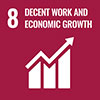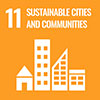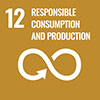Theoretical perspectives on reducing working hours: has the time to work less arrived?
This article examines various economic and sociopolitical perspectives on reducing working hours in the current context. Six main approaches are analysed: the income-leisure choice of neoclassical economics, the distributive conflict of Marxist political economy, the optimization of production processes, the centrality of reproductive work in feminist economics, ecological considerations, and post-work theories. The article shows how these perspectives, often complementary but sometimes contradictory, offer a complex and multifaceted view of the issue. It concludes that the confluence of factors such as technological changes, environmental concerns and new conceptions of work is driving a renewed debate about reducing working hours, posing challenges and opportunities for transforming work organization in contemporary society.
SDG





 Joan Sanchis i Muñoz
Joan Sanchis i MuñozHe is an economist and associate professor of Applied Economics at the University of Valencia. Between 2016 and 2023, he was an advisor on employment matters at the Generalitat Valenciana. He has participated in designing and evaluating several pilot experiences aimed at reducing working hours, such as the aid promoted by the Generalitat Valenciana, the Ministry of Industry of the Government of Spain or the Government of Scotland. He is the author of the book Cuatro días: Trabajar menos para vivir en un mundo mejor, published in Catalan by Sembra Llibres and in Spanish by Barlin Libros. He regularly collaborates with various media.



